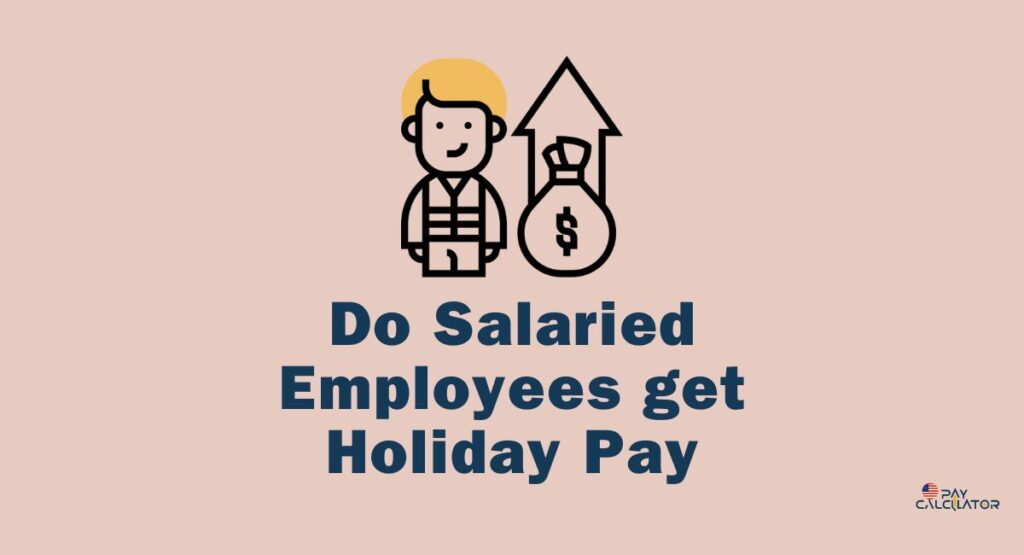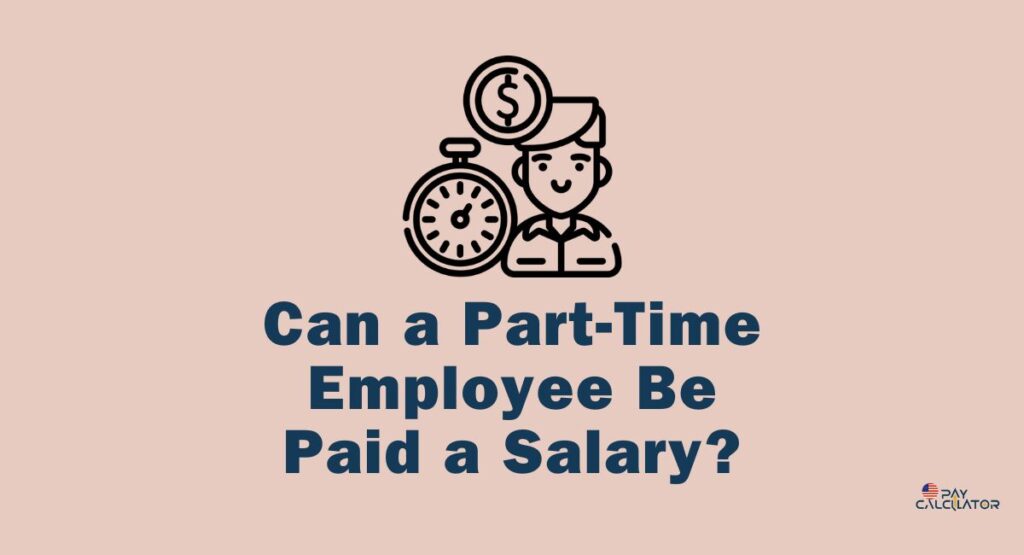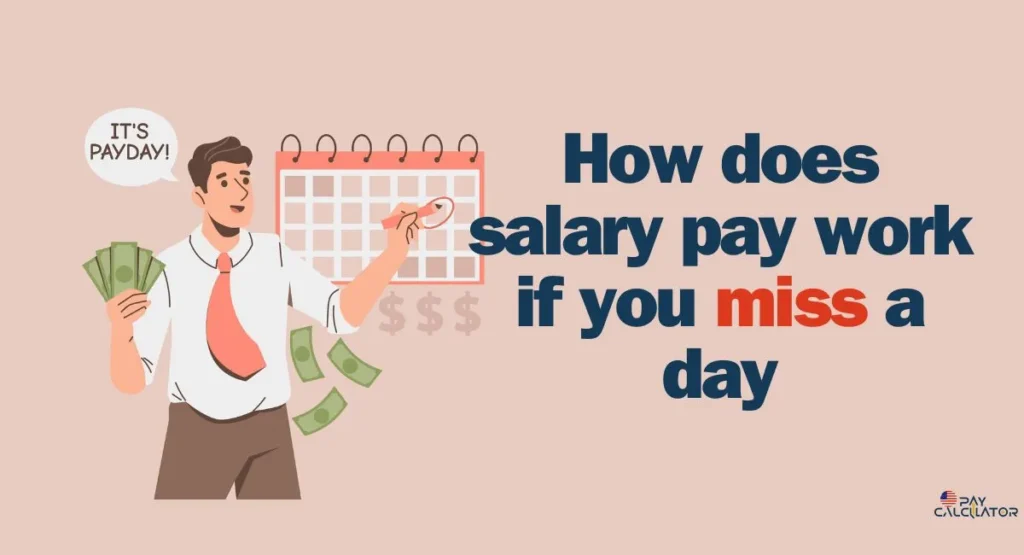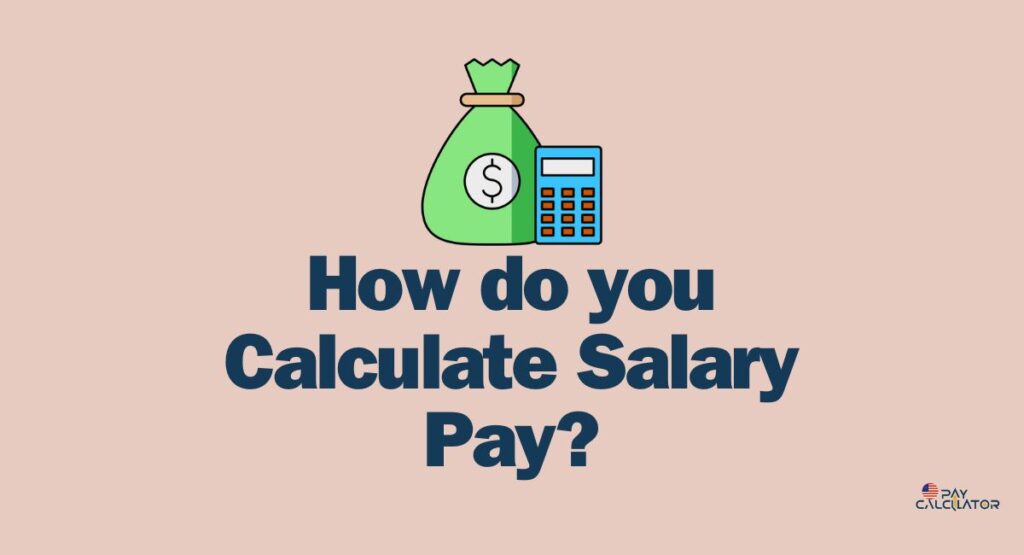
There is not a distinction between salaried (exempt) and hourly (non-exempt) workers when it comes to the law of holiday pay. If the employer of both types of employees allow them to pay holiday salary too then they are only authorized PTO which stands for premium holiday pay. Legally, there are no federal laws that instruct holiday pay. However, if your employer does offer it, then you have a contractual right to it.
Are employers legally required to give holiday pay to salaried workers?
No, legally there are no laws available that instruct private employers to give salaried workers paid time off for holidays. There are very few exceptions to this rule.
The federal law that works for workplace rights is known as the Fair Labor Standards Act (FLSA), and this act does not need holiday pay. Alternatively, this act leaves the problem to state employment laws. The immense majority of states have also declined to mandate the holiday pay.
This has left the issue up to employers. Even though they are not legally required to provide paid time off (PTO) for holidays, many employers elect to provide it. When they do that, the conditions of the PTO will be included in the contract of employment or employee handbook. If your employer offers holiday pay in the contract, then you are permitted to get it. This is because now it is a part of your employee benefits package.
Are there any exceptions?
As per starting in 2023, there are only three types exceptions to the law that workers are not legally permitted to holiday pay or protections for holidays legally:
- Some employees working in the Executive Branch of the federal government,
- Massachusetts, and
- Rhode Island.
Federal law also needs some federal employees to be paid at twice the rate of their regular rate of pay for hours performed on a federal holiday. This benefits is given to the employees who work in:
- departments within the Executive Branch,
- Government owned corporations owned and controlled, or
- independent agencies or other establishments in the Executive Branch, such as the Government Accountability Office (GAO).
But, it does not cover some job position, like:
- heads of departments,
- elected officials,
- members of the Senior Foreign Service,
- civilians working on a Coast Guard vessel,
- employees who are working abroad and are paid using local rules,
- lighthouse keepers, and
- student employees
Only 2 states, Massachusetts and Rhode Island, have state laws protecting workers on the holidays.
In Massachusetts, dealers or the person who sales goods and services are shielded from retaliation for declining to work on the following holidays:
- Columbus Day or Indigenous Peoples’ Day,
- Veterans Day, and
- New Year’s Day.
However, only a few of these dealers or retail workers are salaried employees. And the majority of the employees are non-exempt that received their salary on the hourly rate.
These workers used to be entitled to premium pay during these holidays. But at present times, the change in the law phased out the premium payments and they ended on January 1, 2023.
Similar to overtime pay, employees who work on these days are entitled to one and one-half (1.5) times their regular pay.
However, some specific employees are excepted from this permission, including:
- commercial fishermen,
- farmers,
- healthcare workers,
- lawyers, and
- many types of hospitality workers.
Many other salaried employees are covered, though
Reasons for an employer to give paid holidays?
It is not necessary for a private employer to give their employees a paid holiday but many chose to do so. They give paid holiday to:
- attract better talent,
- reduce turnover,
- improve workplace morale,
- lower worker burnout, and
- increase worker loyalty to the company.
Moreover, one research has shown that giving paid time off for holidays proves to be beneficial in increasing productivity of the employees. For more information, check our previously published article on How does salary pay work if you miss a day?
How can employers provide these benefits?
Employers can give paid holiday to their salaried employees in two ways:
- They can give a bonus or additional pay for the hours that the employee works on the covered holiday, and/or
- paid time off at your regular rate.
For salaried employees, straight PTO is more common than premium pay.However, some employers may let you choose which option you prefer.
What about paid time off for religious holidays?
Employers are not legally required to provide paid time off for religious holidays. But,they can decide to do that in the employment contract.
Some examples of religious holidays include:
- Yom Kippur,
- Diwali,
- Lunar New Year,
- Ramadan, and
- Good Friday.
But,If your employer does not properly allow for your religious holiday, it can come under religious discrimination. Few examples of reasonable accommodations are company policies to:
- schedule your work week around religious holidays, or
- Give you a paid work day off for your religious holiday via your sick leave or vacation time.
What to do if your owner or employer is not paying promised holiday pay?
If your owner or employer promised you a holiday pay policy in your employment contract but you are not receiving it, then it may be a violation of your employment contract. You have legal options.
You can lodge a complaint to the Department of Labor to get the government agency to investigate your problem. You can also file a lawsuit. They would demand compensation for the salary that you should have get. These lawsuits frequently expand into class actions if your coworkers are also being deprived of their holiday pay. Make sure to check our previously published article on Can You Pay an Employee Salary and Hourly?
Frequently Asked Questions
The Fair Labor Standards Act (FLSA) does not require payment for time not worked, such as vacations or holidays (federal or otherwise). These benefits are generally a matter of agreement between an employer and an employee (or the employee’s representative).
Normally, if you’re scheduled to work on a Federal holiday, you’ll have that day off and you’ll be paid normally, whether you’re a full-time or part-time employee.
Conclusion
So, basically to pay for the holidays depends on the employer or the owner of the company. It is not legally binded by any type of law. So if they want to pay you they can mention it in your contract of employment or inform you. And if they do not give you paid holiday then you can lodge a complaint against them. Don’t miss out! Check our previously published article on Should i give my Salary to my Parents?





